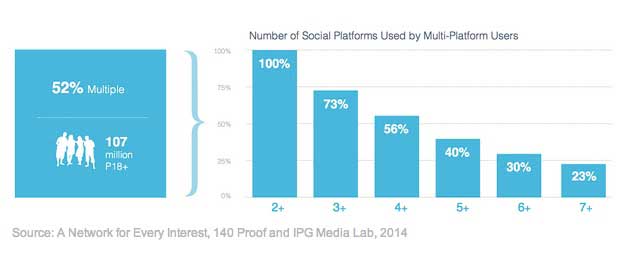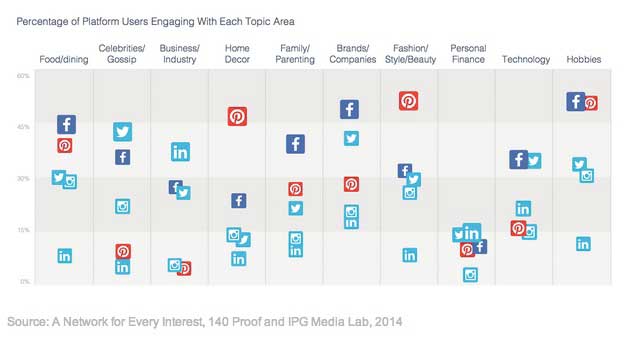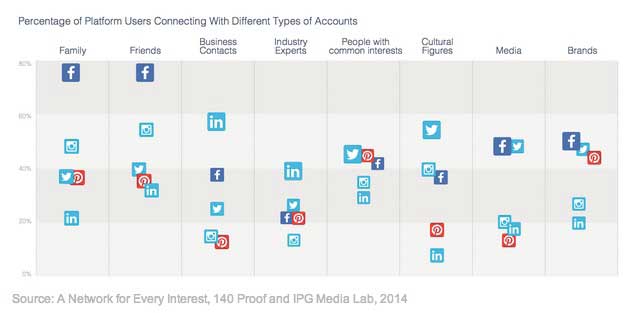People who join multiple social networks tend to engage with distinctly different groups of people and content topics on each platform, according to a recent report from 140 Proof and IPG Media Lab.
The findings were based on data from an survey of 500 online and mobile users in the United States age 18-59 who are active on two or more social platforms, as well as on a qualitative study of eight multi-platform users who kept social media diaries.
Below, key findings from the report.
The Multi-Platform Audience
52% of US online adults say they use multiple social platforms. Of this group, 56% use four or more social platforms, and 23% use seven or more.
Different Topics on Different Platforms
- 60% of multi-platform users surveyed agree with this statement: "I connect with different types of people, media, and brands on different social platforms."
- 72% agree: "Certain platforms are better suited to different interests of mine.”
- The pattern of varied engagement can clearly be seen when topic areas are mapped to popular social networks. For example, Twitter is a common platform for engaging with celebrity content, but not home decor content. Pinterest, conversely, is popular for home decor engagement but not celebrity content.
Social Connections
As with topic areas, multi-platform users tend to engage with different people on different networks. For example, Facebook is the most commonly used network to interact with family and friends, whereas Twitter is where people go to engage with cultural figures.
About the research: The report was based on data from an survey of 500 online and mobile users in the United States ages 18-59 as well as a qualitative study of eight multi-platform users who kept social media diaries.







